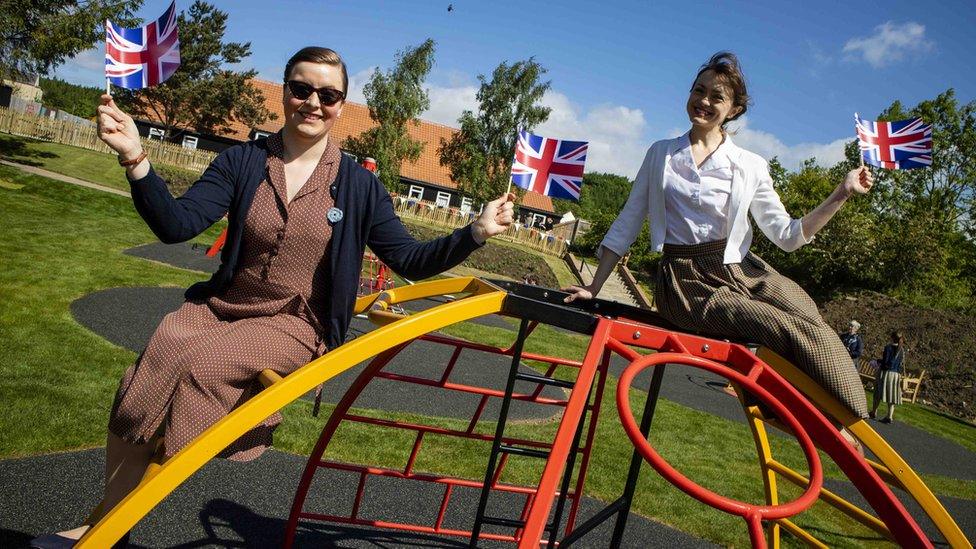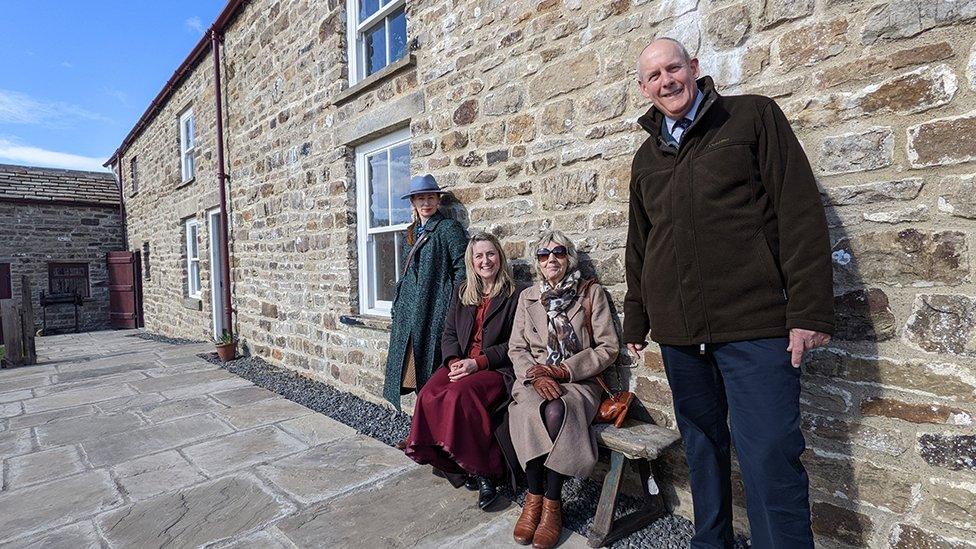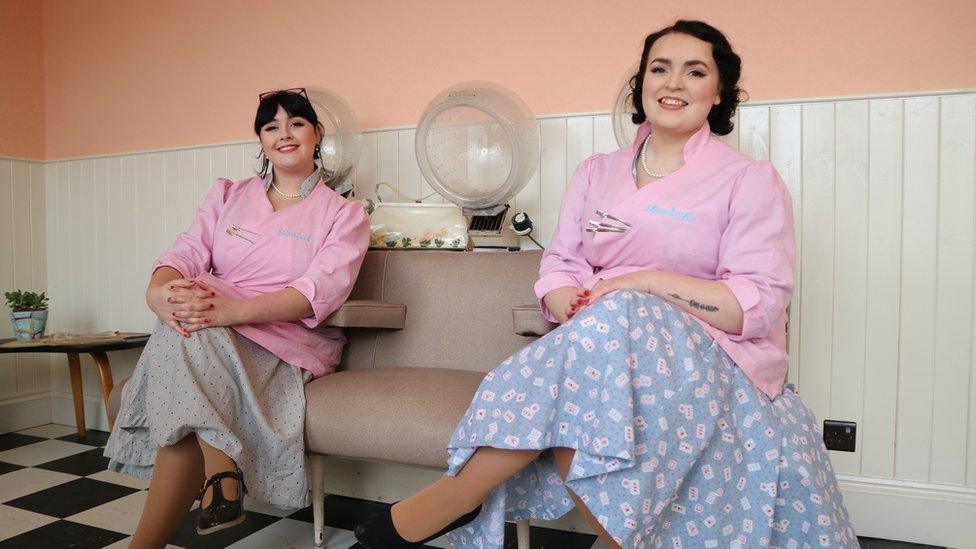Sunderland No.2: Beamish Museum finally acquires 'important' bus
- Published

Sunderland No.2 was among the first 12 buses bought by the Sunderland Corporation
An historically important bus has finally arrived at a museum which has spent years trying to acquire it.
Sunderland No.2 was one of the Sunderland Corporation's first "motor buses" after it was granted permission to operate them in the 1920s.
Beamish Museum in County Durham said it was "the realisation of a long-held aspiration".
Assistant director Paul Jarman said it represented "both the era and the area of work" of the museum's collection.
The vehicle was "regionally important" because of its age and the fact it was one of the first in Sunderland's fleet, he said.

The bus, pictured on the right, is drivable but needs repairs before it can be used on site
Sunderland Corporation's tramway system was established by an act of Parliament in 1899.
The company was given powers to operate motor buses in 1927 but initially hired vehicles and crews from the Northern General Transport Company.
Two years later it bought 12 Leyland Lion LT1s, of which Beamish's new addition was one.
The museum said it marked "a significant step-change in bus design" from vehicles made to carry goods to those tailored to accommodate passengers.

Beamish said it had spent "a number of years" trying to acquire the bus
The Sunderland Corporation continued operating buses in the area until 1973 but Sunderland No.2 was sold to a private dealer in Hull and then exported to Jersey in the 1930s.
It was later withdrawn from service and was, in recent years, owned by the Southdown Omnibus Trust and housed at Amberley Chalk Pits Museum in West Sussex.
The 32-seater is drivable but repairs are planned before it can been used on site, Beamish said.

Follow BBC North East & Cumbria on Twitter, external, Facebook, external and Instagram, external. Send your story ideas to northeastandcumbria@bbc.co.uk, external.
Related topics
- Published28 May 2022

- Published20 March 2022

- Published19 February 2022
